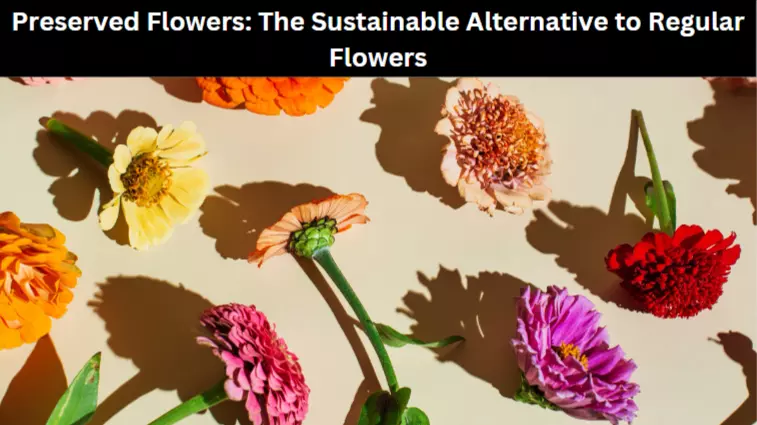Flowers are a beautiful gift of nature that has been used for centuries for different occasions, such as weddings, birthdays, and anniversaries. While regular flowers have been the traditional choice for decorations and gifts, they significantly impact the environment. The use of chemicals, water, and fossil fuels in production, transportation, and storage has led to the degradation of the environment. On the other hand, flowers like a preserved rose are a sustainable alternative that offers the same beauty and charm without harming the environment. In this article, you can explore its benefits over regular ones.
Sustainable Production
The production of regular flowers involves using chemicals such as pesticides and fertilisers, which are harmful to the environment. The chemicals seep into the soil and water, contaminating the environment and affecting the health of humans and wildlife. Furthermore, producing them requires a lot of water, which is scarce in many regions. Water use in flower production can lead to water depletion and scarcity, affecting the ecosystem.
In contrast, preserved flowers are produced using sustainable methods that do not harm the environment. The preservation process involves using natural ingredients such as glycerin, plant-based dyes, and water, which are biodegradable and do not harm the environment. Moreover, they require less water and no chemicals, making them eco-friendly.
Reduced Carbon Footprint
The transportation and storage of regular flowers have a significant carbon footprint. They are usually grown in developing countries such as Colombia, Kenya, and Ecuador and then transported to developed countries such as the United States, Australia and Europe, where they are sold to consumers. Transportation involves using aeroplanes, ships, and trucks, emitting greenhouse gases contributing to climate change. In addition, they require refrigeration during transportation and storage, which consumes significant energy and contributes to greenhouse gas emissions.
On the other hand, preserved flowers do not require refrigeration during transportation and storage. They are long-lasting and can be shipped using standard shipping methods, reducing carbon footprint. Moreover, they do not require fertiliser or pesticides, reducing their carbon footprint.
Long-Lasting Beauty
Regular flowers have a short lifespan, usually lasting a few days or weeks, depending on the type. After this time, they wilt and lose their beauty, leading to waste. They also require maintenance, such as watering and pruning, to maintain their beauty, which can be time-consuming and expensive.
However, preserved flowers are long-lasting and can maintain their beauty for up to a year or more. They do not require any maintenance, such as watering or pruning, which saves time and money.
Versatility and Customisation
Preserved flowers are available in various shapes, sizes, and colours, making them versatile and suitable for different occasions and decorations. They can be used for weddings, birthdays, anniversaries, and more. They can be customised to suit individual preferences and styles. They can be arranged differently and combined with other materials, such as wood, glass, and metal, to create unique and personalised decorations.
Cost-Effective
While they may be more expensive than regular flowers upfront, they offer long-term cost savings. Since they do not require any maintenance, they do not incur additional costs such as water bills or electricity bills for refrigeration. In addition, they do not need to be replaced frequently, leading to cost savings in the long run.
Unique Aesthetic
They have a unique aesthetic that sets them apart from regular ones. Their preserved nature gives them a timeless and elegant appearance that can complement any style or decor.
Conclusion
A preserved flower like a preserved rose offers numerous benefits over regular flowers. Preserved flowers are an eco-friendly choice that reduces the use of chemicals, water, and fossil fuels in flower production. They are long-lasting and do not require maintenance, which saves time and money.
